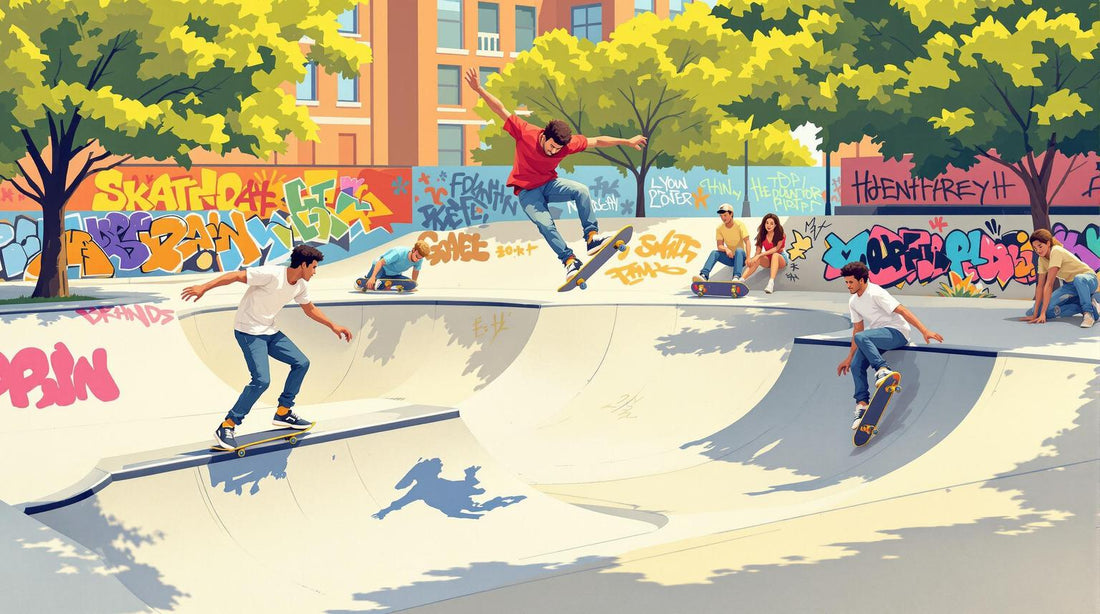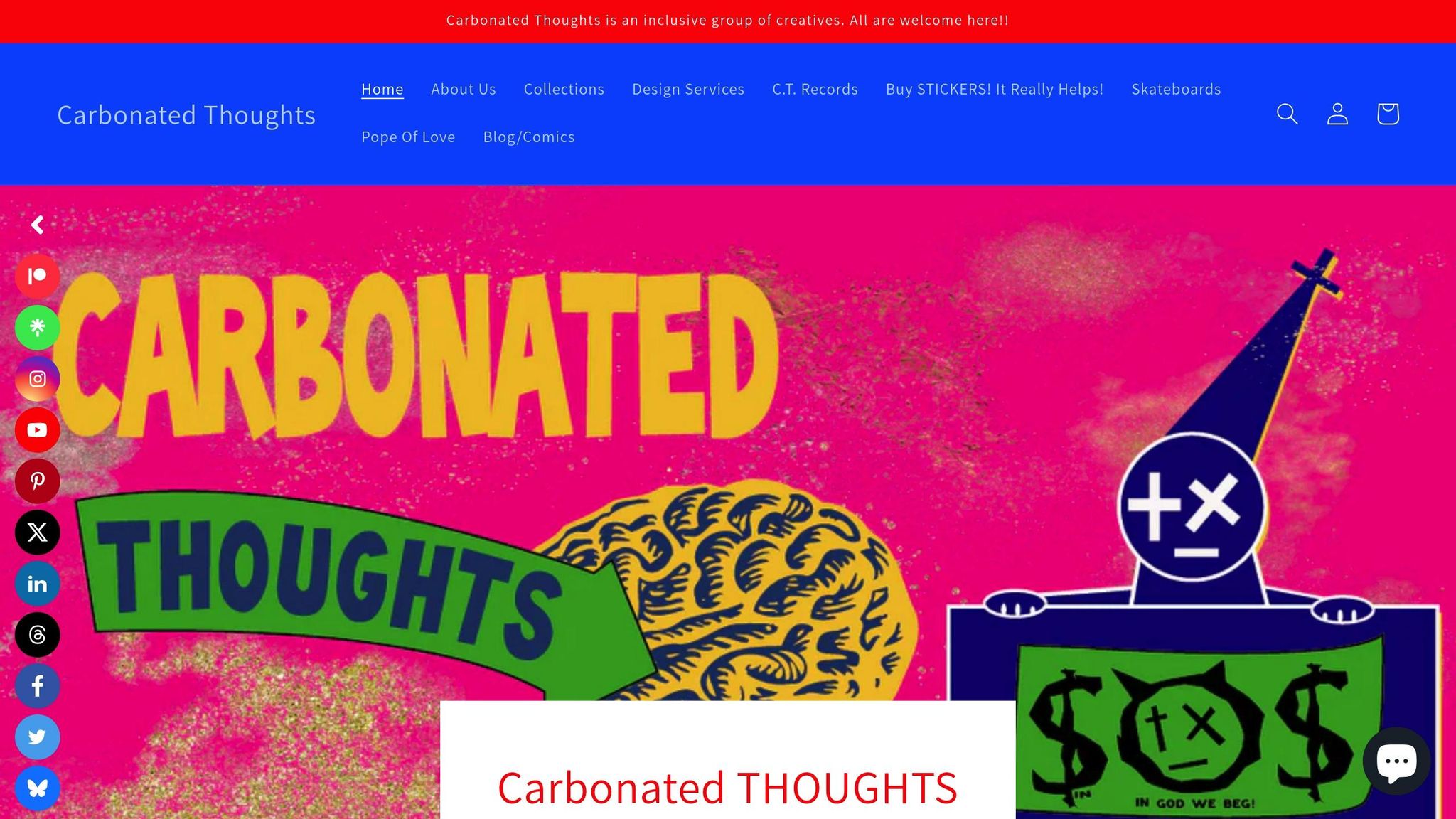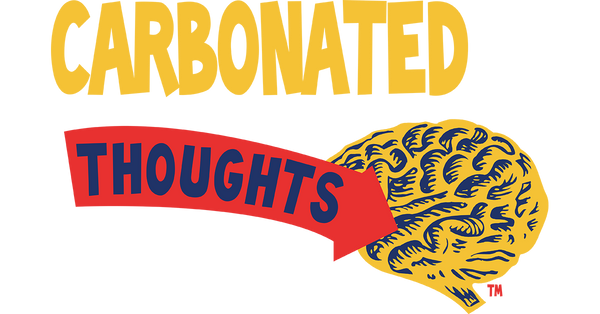
Skateboarding is better for you than religion
Share
Skateboarding offers an alternative way to grow, connect, and express yourself that rivals traditional religion. Here's why:
- Resilience Through Failure: Falling and getting back up teaches persistence and personal growth.
- Freedom to Set Goals: Unlike structured systems, skating is self-driven and lets you define your own milestones.
- Community Without Barriers: Skateparks and skating culture bring people together, fostering connections across diverse backgrounds.
- Creative Expression: Skaters turn urban spaces into canvases for individuality and style.
- Mental Health Benefits: Skating boosts mood, reduces stress, and builds confidence through physical activity and community support.
Quick Comparison
| Aspect | Skateboarding | Religion |
|---|---|---|
| Growth Philosophy | Learn through failure | Strive for perfection |
| Community Structure | Informal, inclusive groups | Formal hierarchies |
| Practice Style | Self-driven and experimental | Guided by traditions |
| Expression | Creativity and individuality | Structured rituals |
Skateboarding blends challenge, creativity, and connection, offering a modern path to fulfillment without rigid doctrines.
Discussing Skateboarding with Neuroscientist Andrew ...
How Skateboarding Shapes Character
Skateboarding pushes both physical and mental limits, requiring responsibility and self-motivation.
Learning Through Failure
Every fall is a lesson in persistence. The repeated effort to stand up after each tumble builds a mindset that sees setbacks as opportunities to grow.
Setting Your Own Goals
Skateboarding isn't about following a set path; it's about defining your own. Whether you're working on nailing a kickflip or tackling a challenging stair set, it’s all about personal milestones. These achievements boost confidence and independence, showing that progress is about your journey, not what others think. Over time, this process helps skaters develop their own unique style on the streets.
Creating Your Own Style
Skateboarding turns urban spaces into a canvas for personal expression. Skaters use their surroundings to craft unique movements and interpretations, blending creativity with athleticism in a way that’s entirely their own. The streets become a stage for individuality.
Building Connections Through Skating
Skateboarding naturally brings people together, welcoming individuals from all walks of life. These shared experiences create a sense of purpose and belonging.
Skateparks as Community Hubs
Modern skateparks have become more than just places to skate - they're gathering spots where skaters of all backgrounds connect. These spaces encourage mentorship, friendship, and meaningful interactions.
"Everyone comes together here, so a lot of friendships are created that otherwise wouldn't have happened. The kids at the park are not only discovering a new sense of community, but a passion, and talent, for skating." – Sean Stromsoe, co-founder of Ethiopia Skate
Skateparks offer a variety of benefits for communities:
- Youth Development: They encourage self-expression, creativity, and teamwork.
- Social Integration: People from different backgrounds meet and build mutual respect.
- Physical Activity: Skateboarding promotes an active lifestyle and reduces inactivity.
- Economic Growth: Recreational facilities often attract investment and boost local economies.
This sense of community naturally fosters an inclusive and welcoming culture.
A Culture Open to All
While skateparks help build connections, skateboarding culture itself is inherently inclusive. Unlike many traditional institutions, skateboarding embraces everyone. This openness is a core part of its identity, as highlighted by industry leaders and advocates.
Dan Hughes, a well-known figure in the skating world, shares his perspective:
"Skateboarding reaches these at-risk youth, like no other sport. And it's cool too. But, people are out of touch with what is happening, and just want to get these annoying skateboarders out of their hair. All the while, kids are learning that as skaters they are second-class citizens. Yet, it's these same skateboarders who are learning a valuable work ethic. Because, believe me, if you don't work hard and commit to a trick, you won't land it. They also learn how to work independently, and also how to be creative, and develop their own style."
The global recognition of skateboarding's positive impact continues to grow. Renata Simril captures this sentiment:
"Skateboarding has always been a hotbed of culturally-rich, diverse participants who inspire youth not only here at home, but across the globe. The whole world will soon recognize that skateboarding is an engine for global social change and a progressive tool for inclusion with skateboarding's arrival in the Olympic Games for Tokyo 2020."
The relationships and sense of belonging forged through skateboarding often last a lifetime, offering a deep connection that rivals more traditional communities.
Self-Expression in Skating
Skateboarding offers the chance to develop a personal style without being tied to traditional rules. Through movement and interpretation, skaters create approaches that showcase their unique personalities.
Skating as Art
Skateboarding is more than just a sport - it's a form of art that blends motion, style, and vision. Every skater brings their own unique flair to the craft.
"Infinity, and it represents openness. It's a lifestyle for inventor minds. Skateboarding is falling down and getting back up. Inventing. Playing for the sake of playing. Toying around. That is why I do it and what I feel from my participation is similar to meditation, like a lulled-out, relaxed state – the very act of riding the board changes the way you move through life."
This artistic side comes to life in several ways:
- Personal Style: Skaters develop their own techniques for tackling challenges.
- Creative Problem-Solving: They come up with fresh ways to handle obstacles at their favorite spots.
- Visual Expression: Boards and clothing become tools for showing off identity.
This creativity often extends into the urban world around them.
Making Cities Your Canvas
To skaters, cities aren't just places - they're playgrounds. Stairs, handrails, and benches become opportunities for creativity and personal milestones.
"I don't see skateboarding as a sport, but a way to navigate and manipulate an urban environment in ways you see fit."
sbb-itb-e116ef9
Skating for Better Mental Health
Skateboarding isn't just about tricks and ramps - it's also a great way to support mental well-being. By combining movement, focus, and connection with others, it provides a unique way to help manage stress and improve emotional health.
Physical Activity and Mood
Skateboarding naturally lifts your mood by releasing endorphins. During the COVID-19 pandemic, more than 70,000 people in the UK turned to skateboarding to ease stress and anxiety. The rhythmic motion and physical effort involved not only release feel-good chemicals but also help regulate the nervous system, build confidence, and shift focus away from daily worries.
In fact, skateboarding has been integrated into clinical programs for trauma recovery and behavioral therapy. The physical feedback from skating helps individuals process emotions and connect their actions to emotional responses. Plus, the sense of community among skaters adds an extra layer of emotional support.
Friends Who Skate Together
Skateboarding creates a tight-knit community that helps combat feelings of isolation. Unlike many other group activities, skating brings together people from all walks of life through shared experiences.
"I've always felt skateboarding was my personal form of therapy." - Jedain Arron, Founder and Writer, Skateboard Session
Research on female skateboarders has revealed improvements in body image, social connections, and reduced stress levels. These communities offer a natural space for emotional growth and lasting friendships. Experts suggest starting with supportive groups, paying attention to mood changes, and sticking with it for the best results.
Side-by-Side: Skating and Religion
Key Differences and Similarities
Skateboarding provides a unique way to grow personally and connect with others, blending physical action with a sense of spirituality. It reshapes how people tackle meaningful challenges in life.
Although skateboarding and religion both encourage personal development, their methods are quite different:
| Aspect | Skateboarding | Traditional Religion |
|---|---|---|
| Growth Philosophy | Focuses on learning through failure | Aims for perfection or ideal states |
| Community Structure | Informal, self-organized groups | Formal hierarchies and gatherings |
| Practice Style | Self-driven and experimental | Guided by established traditions |
| Expression | Personal creativity and interpretation | Structured rituals and practices |
This comparison highlights how skateboarding blends personal expression with communal support, much like art or spirituality.
The act of falling and getting back up represents a journey filled with risk, trial, and progress. Terry Shoemaker, a Lecturer in Religious Studies at Arizona State University, explains that "landing a kickflip or grinding a handrail delivers a burst of exhilaration and creative release".
Skateboarding requires hands-on effort and personal commitment, focusing on learning through experience rather than following set rules. It thrives in urban landscapes, where everyday structures become tools for creativity. Paul O'Connor, a researcher on skateboarding culture, shared that skateboarding "fills a spiritual void in the same way religion does for others".
For many skaters, the practice feels meditative, offering a state of deep focus and a new way to connect with their surroundings. This experience mirrors the benefits of traditional meditation while building an active relationship with the urban environment.
Skating in Business
Skateboarding is doing more than influencing personal lives and communities - it’s also reshaping urban business culture in surprising ways.
From Tricks to Trademarks
Skateboarding has had a huge impact on fashion, retail, and entrepreneurship. Its DIY mindset has given rise to billion-dollar brands while staying true to its street roots.
Take Vision Street Wear, for example. They were among the first to recognize that skaters needed clothing that reflected their lifestyle, blending practicality with street style. Then there’s Supreme, which started as a small skate shop in 1994 and grew into a billion-dollar brand.
"Skaters are amazing, smart, and creative, and people want a piece of what they have. It's that simple."
– Brendon Babenzien, Creative Director of Noah
Women and LGBTQ+ skaters are also influencing the business side of skating, bringing new ideas to product design and marketing. Professional skater and Dior model Briana King explains:
"I definitely see people moving out of their typical skateboard attire. Most of us started skateboarding later on in life, so we already found our sense of fashion outside of skateboarding. And we bring it into [the sport]."
Meanwhile, organizations like Skateistan are making a difference in places like Afghanistan, Cambodia, and South Africa by empowering marginalized youth. Closer to home, the Harold Hunter Foundation supports New York City skateboarders with community-focused programs. These efforts reflect the entrepreneurial spirit that keeps skate culture alive and thriving.
Carbonated Thoughts: Supporting Skate Culture

Carbonated Thoughts is a company that perfectly captures skateboarding’s creative energy. Based in Gloucester, MA, it merges art, skateboarding, and streetwear to show how the sport’s values can shape business.
The company supports the skateboarding community through initiatives like:
| Service | Purpose | Impact |
|---|---|---|
| Design Services | Helps skate brands with creative development | Supports emerging artists and entrepreneurs |
| Environmental Initiatives | Plants a tree for every skateboard sold | Combines skating with eco-friendly efforts |
| Community Projects | Promotes local skate culture | Creates inclusive spaces for all skaters |
Carbonated Thoughts also offers graphic design services ($55/hour) and business consulting ($100/hour), helping turn skateboarding passion into business success.
Groups like Girls Skate Network and Skate Like a Girl are also teaming up with businesses to create more inclusive spaces in the skating world. As Hiroshi Fujiwara, often called the Godfather of Ura-Harajuku fashion, puts it:
"The street fashion I envision comes from skateboarding. Skateboarding was a sport you did on the street, so I think that's where [streetwear] comes from, originally."
These collaborations and ventures continue to highlight skateboarding’s influence on creativity and its lasting impact on communities.
Conclusion: Why Skating Matters
Skateboarding combines physical challenge, self-expression, and a sense of community, offering a unique way to navigate life's ups and downs. As traditional norms shift, skateboarding has become a meaningful outlet for personal growth and exploration.
It provides an alternative path for building resilience and finding purpose. Skaters learn to bounce back from setbacks and carve their own way forward, gaining confidence and independence along the ride.
Skaters also transform the urban landscape into a canvas for creativity. By reimagining their surroundings, they turn routine rides into reflective moments that promote problem-solving and personal freedom.
The skateboarding community thrives on shared experiences and mutual support. Setbacks aren't just obstacles - they're opportunities to grow. This mindset strengthens individual determination while fostering a network built on encouragement and collaboration.
More than just a sport, skateboarding connects people through shared passions. It serves as a reminder that meaning can be found in the simple act of riding, while also inspiring growth, both personally and as part of a larger community.
